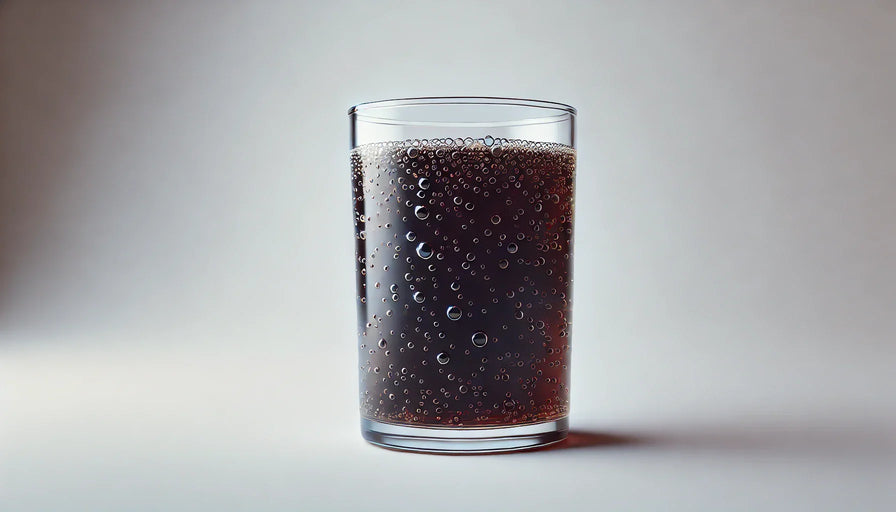
Can You Be Allergic to Carbonation?

Can you be allergic to carbonation?
While you can't actually be allergic to carbonation—since it's just liquid infused with carbon dioxide—some people may experience allergic-like symptoms due to other ingredients found in these beverages, such as additives, preservatives, or the sugars and acids they contain.
Many consumers often wonder if carbonation—the signature fizz of soft drinks—might contribute to discomfort or negative health effects, including concerns about bone health.
While true allergies to carbonation itself do not exist, certain ingredients commonly found in these beverages can trigger allergy-like reactions in some individuals.
This blog seeks to delve into the relationship between carbonated drinks and allergic responses, illuminating the underlying factors that may contribute to these reactions. Our goal is to empower consumers to make informed choices about their beverage options.
Table of contents
What are sulfites?
Sulfites are chemical compounds derived from sulfur dioxide and are commonly used as preservatives in a variety of food and beverage products, including wine, dried fruits, and some carbonated drinks.
Why are we talking about sulfites all of a sudden? Well, for individuals with sulfite sensitivity or sulfite allergies, consumption can lead to adverse reactions such as headaches, hives, or gastrointestinal issues.
When there are reactions to consuming carbonated beverages, it's easy to blame the CO2 found in your beverage, but you may want to look deeper than just the bubbles as there may be sulfites that can further explain the sudden reaction.
These reactions are particularly concerning for asthmatics, as sulfites can trigger asthma attacks in susceptible individuals.
Related read: Is Carbonated Water Bad for Your Kidneys?

Carbonated beverages with sulfites
Certain sparkling water and soda brands incorporate sulfites into their formulations, primarily as preservatives or to enhance flavor.
It’s important for consumers, particularly those with sensitivities, to be aware of these brands. Here’s a list of some sparkling water and soda brands that may contain sulfites:
Sparkling Water Brands
- Perrier
- San Pellegrino
- La Croix (some flavors)
- Nestlé Pure Life Sparkling
Soda Brands
- 7UP
- Sprite
- Barq's Root Beer
- Fanta (certain flavors)
- Coca-Cola (certain flavors)
This list includes popular brands that typically contain sulfites, and there may be other brands that also include sulfites. Always check the product label for sulfites to make informed choices, especially if you have known sensitivities.
Something also to note is that many carbonated drinks can contain a low pH level due to acidic ingredients, such as sodas, energy drinks, and certain flavored sparkling waters. This can cause damage to tooth enamel if consumed regularly.

Surprising health benefits of carbonated water
While often perceived as a simple fizzy drink, carbonated water offers several surprising health benefits that may enhance your overall wellness. Here are some notable benefits:
- Improved digestion
- Hydration
- Weight management
- Improves satiety
- and so many more health benefits!
If you are suffering from digestive issues such as IBS, learn more on whether sparkling water is bad or good for your irritable bowel syndrome symptoms!

Key takeaways
- Carbonation itself cannot cause allergies; reactions are typically due to other ingredients.
- Sulfites, commonly found in some carbonated beverages, can trigger allergic-like symptoms.
- Individuals sensitive to sulfites should carefully read product labels to avoid adverse effects.
- Carbonated water offers health benefits such as improved digestion and hydration.
- Be cautious of popular sparkling water and soda brands that may contain sulfites.
Recommended reading

How to Give Back During Thanksgiving 2025
Key takeaways Thanksgiving is a time to express gratitude and share with those in need. From volunteering at local shelters to donating food and essentials, there are numerous ways to give back to...

What Does Carbonation Do to Your Body?
What does carbonation do to your body? Carbonation alone typically has minimal effects; however, it can cause bloating and discomfort for some, and it may worsen acid reflux due to carbon dioxide ...

What Are the Health Benefits of Sparkling Water?
Summary Sparkling water isn't just a refreshing drink—it comes with surprising health benefits too. From aiding digestion to improving hydration, discover how sparkling water can be a healthy addi...